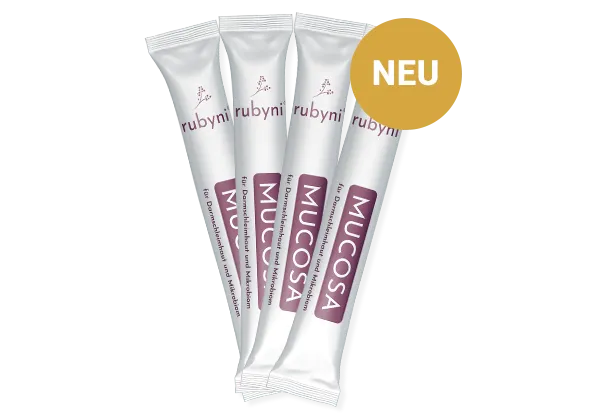Focus on intestinal health
Healthy digestion is an important basis for our well-being and plays a decisive role in our general health. In times of increasing food intolerances and allergies, more and more people are focusing on the topic of gut health. Terms such as probiotics and prebiotics are increasingly coming into focus. But what exactly are they? What is the difference? And what contribution can probiotics and prebiotics make to a balanced microbiome? We answer these questions in this article.
What are probiotics?
Probiotics are living microorganisms that can support the balance of the intestinal flora in sufficient quantities. They are often referred to as “good” bacteria and contribute to a diverse intestinal flora.
Benefits of probiotics?
- Support digestive processes and a balanced microbiome
- Contribute to a stable intestinal flora
- Contained in fermented foods such as yoghurt, kefir, sauerkraut and kimchi
A regular intake of probiotic foods can make a valuable contribution to the diet. They are therefore an integral part of the diet for many people who follow a balanced diet.
What are prebiotics?
In contrast to probiotics, prebiotics are not living microorganisms, but special dietary fibers that are not digested by the human body. They serve as a food source for certain bacteria in the gut and can therefore contribute to the diversity of the microbiome.
Benefits of prebiotics?
- Promotes the growth of beneficial intestinal bacteria
- Contribute to a stable intestinal flora
- Contained in foods such as onions, garlic, bananas, chicory and wholegrain products
Incorporating prebiotic foods into the diet can help to diversify the gut microbiome.
Health begins in the gut
Stable intestinal health requires holistic support of the entire intestinal environment. A diverse intestinal flora can support digestion, strengthen the immune system and contribute to general vitality. In addition to a balanced diet, specifically selected ingredients such as prebiotics and polyphenols can help to maintain intestinal balance.
Targeted support for the gut microbiome
If you don’t want to pay daily attention to which foods contain which substances, you can also use targeted nutritional supplements. It is important to make a scientifically sound selection of ingredients.
Prebiotics with valuable plant substances that specifically support the microbiome can help to promote the natural balance of the gut and support well-being in a sustainable way.

For intestinal mucosa
and microbiome
rubyni® MUCOSA
- Combination of fiber, vitamins, valuable plant extracts and the mineral calcium
- High-quality raw materials: organically grown elderberries and high-fiber kiwi fruit
- Prebiotic properties support microbiome diversity
